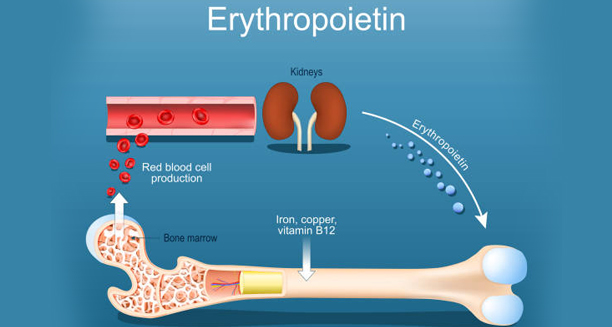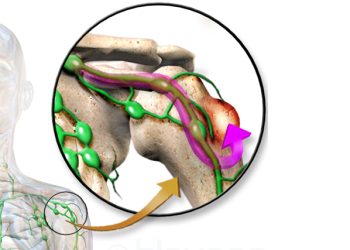Causes of Erythrocytosis
The causes of erythrocytosis vary and are typically classified as either primary or secondary. Erythrocytosis can result from abnormal bone marrow function or be a natural response to conditions that limit oxygen delivery in the body.
Primary Causes
Primary erythrocytosis originates within the bone marrow itself. The most common cause is:
Polycythaemia vera – A rare blood cancer in which the bone marrow produces too many red cells, often along with white cells and platelets. This is due to a mutation in the JAK2 gene.
In this form, erythropoietin (EPO)—the hormone that stimulates red blood cell production—is usually low because the red cells are being overproduced without any external trigger.
Secondary Causes
These occur when another condition causes the body to produce extra erythropoietin in response to low oxygen levels or other stimuli:
Chronic lung diseases, such as COPD or sleep apnoea
Living at high altitudes, where oxygen levels are naturally lower
Heart conditions, particularly congenital heart disease with low blood oxygen
Kidney tumours, which may secrete excess EPO
Liver disease, especially in those with cirrhosis or hepatocellular carcinoma
Testosterone therapy, which can stimulate red blood cell production
Anabolic steroid use, often seen in athletes or bodybuilders
Apparent (Relative) Erythrocytosis
In some cases, the red cell count appears high due to a reduction in plasma volume, not an actual increase in red cells. This is called relative erythrocytosis and may be caused by:
Dehydration
Severe burns
Diuretic overuse
Chronic stress or smoking
Causes of Erythrocytosis In South Africa
In South Africa, high-altitude erythrocytosis is more likely in populations living in the Drakensberg or Lesotho mountains. Smoking-related lung disease and chronic obstructive pulmonary conditions are also common contributors, particularly in older men.
Kidney disease is a growing concern due to rising rates of hypertension and diabetes, and this may result in EPO overproduction in some individuals.
Understanding the causes of erythrocytosis allows doctors to distinguish between dangerous forms that require treatment and benign types that may need only monitoring.
[Next: Symptoms of Erythrocytosis →]


